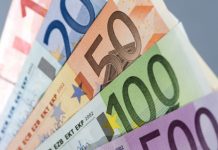After trading relatively flat for most of Tuesday, the euro lost ground versus the pound later in the session. The pound euro exchange rate rallied to €1.1370, regaining the losses from Monday’s session.
| What do these figures mean? |
|---|
|
When measuring the value of a pair of currencies, one set equals 1 unit and the other shows the current equivalent. As the market moves, the amount will vary from minute to minute. For example, it could be written: 1 GBP = 1.13990 EUR Here, £1 is equivalent to approximately €1.14. This specifically measures the pound’s worth against the euro. If the euro amount increases in this pairing, it’s positive for the pound. Or, if you were looking at it the other way around: 1 EUR = 0.87271 GBP In this example, €1 is equivalent to approximately £0.87. This measures the euro’s worth versus the British pound. If the sterling number gets larger, it’s good news for the euro. |
With no high impacting UK economic data investors attention was firmly on Brexit developments. The previous week saw relatively few negative headlines coming from the negotiations in Brussels. However yesterday, EU chief Negotiator Michel Barnier once again cast doubts over the post Brexit transition period. Barnier warned that time was running out to strike a deal and that there were still vast differences between the position of the two sides. A deadline of October has been set as a target for agreeing a treaty, including a transition period, in order for it to be ratified before Brexit. The fear is, that if a transition deal isn’t agreed then a hard Brexit is almost guaranteed, which is the worst possible scenario for the pound.
| Why is a “soft” Brexit better for sterling than a “hard” Brexit? |
|---|
| A soft Brexit implies anything less than UK’s complete withdrawal from the EU. For example, it could mean the UK retains some form of membership to the European Union single market in exchange for some free movement of people, i.e. immigration. This is considered more positive than a “hard” Brexit, which is a full severance from the EU. The reason “soft” is considered more pound-friendly is because the economic impact would be lower. If there is less negative impact on the economy, foreign investors will continue to invest in the UK. As investment requires local currency, this increased demand for the pound then boosts its value. |
In the absence of any further Brexit headlines, consumer confidence data could capture the attention of pound traders. Analysts are expecting consumer confidence to have declined in February to -10, down from -9 in January, as Brexit uncertainties weigh on sentiment. This is bad news for the pound because when consumers feel less confident, they tend to spend less, preferring to hold onto cash for potential difficult situations later down the line. Should the reading disappoint, the pound could fall.
Germany A Step Closer To Forming A Government
The euro was also under pressure on Tuesday as euro traders continue to digest what a new Grande coalition will mean for Germany and for the European Union. Earlier in in the week, German Chancellor Angela Merkel won the approval of her party, the Christian Democratic Union to renew a coalition with the Social Democrats. This will put an end to the political vacuum in Germany which has been present since the elections in Autumn last year.
Angela Merkel’s authority is starting to wane, and many conservatives are disappointed with her decision to give the finance ministry to the SDP in the coalition deal. The SPD are expected to vote on 4th March.
| How does political risk have impact on a currency? |
|---|
| Political risk drags on the confidence of consumers and businesses alike, which means both corporations and regular households are then less inclined to spend money. The drop in spending, in turn, slows the economy. Foreign investors prefer to invest their money in politically stable countries as well as those with strong economies. Signs that a country is politically or economically less stable will result in foreign investors pulling their money out of the country. This means selling out of the local currency, which then increases its supply and, in turn, devalues the money. |
Today, the euro could experience some volatility a with the release of inflation data for the eurozone. Analysts are forecasting a dip in inflation to 1.2% in January, down from 1.3%.
|
This article was initially published on TransferWise.com from the same author. The content at Currency Live is the sole opinion of the authors and in no way reflects the views of TransferWise Inc. |





